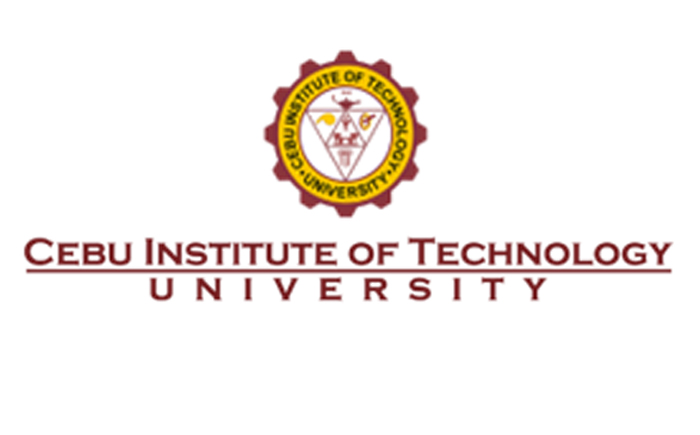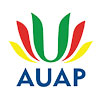Cebu Institute of Technological University
CIT VISION-MISSION PRIMER
The Vision-Mission of the university defines the ideals and aspirations of all stakeholders as a collective entity. These help the institution appreciate its reason for being at the same time set directions for current undertakings and future endeavors.
The IDENTITY is a general statement describing the nature of the institution and the core competency.
IDENTITY, Cebu Institute of Technology – University is a private, non-sectarian academic institution founded in 1946. It provides basic (early childhood, elementary, high school), vocational, higher, and non-conventional or alternative education. Science & Technology is a way of academic life among administrators, faculty, and students. In the design, administration, and implementation of curricular programs, technology is embedded, articulated, and actuated.
“VISION embodies the aspiration of the institution culled from the wishes expressed by its various stakeholders. The vision statement manifests the institution’s concerted effort to respond actively or proactively to local, national and global developments. It provides direction to its different sectors in sustaining the continuous growth and development of the institution.” (PACUCOA Self-Survey Tool)
WE ENVISION TO BE A TOP PHILIPPINE UNIVERSITY IN 2025
• TRUSTED EDUCATION PROVIDER
• OUTCOMES-BASED INSTITUTION OF RESEARCH AND LEARNING
• PEOPLE-ORIENTED ORGANIZATION
The track record of CIT having graduates topping the board exams has been unwavering. It is from this reputation that the tagline “CIT TOPS AGAIN” has been phrased as a motto of victory among the Technologian.
With its quest for excellence, CIT is aiming to redefine its tagline “Tops Again” to refer to the notable achievements of the university, its students and alumni through the years.
For this version of the vision, the word "TOP" is an acronym; thus, emphasizing that the vision will be measured based on the institution's own definition and targets.
For the next five years, the institution shall work harder to establish its brand of education through valued external/community relations (T), effective instructional processes (O), and sound organizational practices (P).
Thus, the dream of becoming a top academic institution is not impossible to achieve.
“MISSION is the reason for being of the education institution and, in many instances, may have originated from the people and/or organization that founded the institution. The mission statement expresses in broad terms the role, functions and services that the institution is committed to perform given its background, cultural legacy and capability.” (PACUCOA Self-Survey Tool)
WE GEAR FOR LIFE.
CIT COMMITS TO:
• Guide learners to become industry-preferred and life ready professionals
• Empower people for knowledge generation and creativity
• Accelerate community development
• Respond proactively to a fast-changing world
The word gear, used as a verb, means to make something ready or suitable for a particular purpose (httpss://dictionary. cambridge.org/dictionary/english/gear). As a noun, it means a mechanism for transmitting motion for some specific purpose (httpss://www.vocabulary.com/dictionary/gear).
The first three sub-statements refer to the three-fold functions of universities - Instruction, Research, and Extension. The fourth sub-statement describes CIT's commitment to offer programs that are responsive to the needs of the times.
CIT was founded in 1946, after World War II, with the intention of helping the country rise from the ruins of war. Thus, the institution opened degree programs that would produce able engineers and other professionals who could serve to rebuild the nation.
THE CORE VALUES are identified traits that build the heart and character of a Technologian. These attributes are founded on the Filipino cultural values
• Culture of excellence
• Integrity
• Teamwork
• Universality
Culture of excellence
A commitment to go beyond the ordinary; steadfast in delivering data-driven, value-optimized and client-centric service
Inspired by the Filipino hospitality, an environment that empowers individuals to be their best makes you feel like you belong. When employees are happy and take pride in their jobs, they naturally want to make their clients and customers happy. Culture of Excellence is demonstrated in practicing common courtesies and professionalism in dealing with colleagues and other stakeholders.
Integrity
Uncompromising adherence to moral and ethical principles
Trust, honor, and honesty are key elements to the concept of integrity. These traits foster a positive workplace culture. A person with integrity takes responsibility for one's actions. The concept of hiya or sense of propriety and palabra de honor or word of honor give a Filipino a sense of social decency and politeness. Integrity is exemplified in observing timelines, punctuality in reporting to work, transparency of processes, validity of examinations, among others.
Teamwork
Promoting a culture of collaboration and empowerment/ Commitment to purposeful collaboration to advocate for innovative solutions
Bayanihan is a core essence of the Filipino culture. This refers to a group or a community coming together and helping one another to achieve a common, greater goal. It is also called the ‘community spirit’. The value of helping one another, without expecting anything else in return
Universality
Regard for the welfare of people and nature/ Respect for all and stewardship of God's creation / Promotion of common good of, by and for all
Pakikipagkapwa-tao means treating each other with utmost respect. It is the foundation for unity as well as of the sense of social justice. Those engaging in pakikipagkapwa-tao are expected not only to understand others but also develop a sincere interest in their well-being.
THE GRADUATE ATTRIBUTES / INSTITUTIONAL OUTCOMES are the core competencies that a graduate of Cebu Institute of Technology – University is expected to demonstrate upon completion of their program of study. These characteristics shall define and differentiate a Technologian from other graduates.
• Values-driven
• Competent
• Innovative
• Technology - proficient
Values-driven
Act in accordance with moral and ethical principles personally and professionally
A Values-driven Technologian is someone who exemplifies the Core Values of the university. The trait of “values driven” is of primary importance. This is to emphasize that the worth of a person is over and above knowledge and skills.
Competent
Design and articulate appropriate solutions to real-life scenarios
A Competent Technologian is a well-rounded person (skilled and knowledgeable in a lot of different things) who uses critical thinking (analysis), and problem solving skills in finding solutions to a variety of real-life situations. As a professional leader, he/she is able to articulate his/her ideas or feelings fluently and coherently. With this, the university sees to it that the outcome of its learning activities would produce graduates who are entrepreneurial in spirit, industry-preferred, and life-ready.
Innovative
Execute new ideas with the aim of improving efficiency, effectiveness or competitive advantage
An Innovative Technologian is open to change (adaptable), a willing collaborator (team player), and engages in self-motivated pursuit of knowledge. The trait of being “Innovative” is posed as a challenge to every Technologian. With the fast growing society, the need for novel ways to improve people’s lives is inevitable. Thus, research is made essential in all curricular programs to develop students’ ability to use scientific solutions and find the right resources in their attempt to answer questions and problems that may arise in various social settings or in one’s daily life.
Technology - proficient
Use, develop, and advance technology in the specialized field
A Technology - proficient Technologian is focused on making things happen. Uses technology to communicate effectively and professionally, organizes information, produces high quality products, and enhances one's own ability to think and collaborate.
KEY RESULT AREAS are strategic factors where strong positive results must be achieved for the institution to carry out its mission and take a step ahead towards the organization’s vision.
• Culture and People Development
• Process Development & Technology Management
• Client Relationship
• Stewardship
Culture and People Development
This is to highlight the plan of adding or enhancing competencies of the people.
Process Development & Technology Management
This is to emphasize the continuous process improvement efforts of the University, and underscore the establishment of a culture of technology use and to advocate technological advancement.
Client Relationship
This is to accentuate company-wide initiatives and systems to nurture and sustain mutually beneficial relationships with customers & stakeholders.
Stewardship
This is to stress the importance of collective responsibility to ensure the vitality of the University as well as promoting environmental protection as a way of life within the CIT University community.
Official website:
Website







